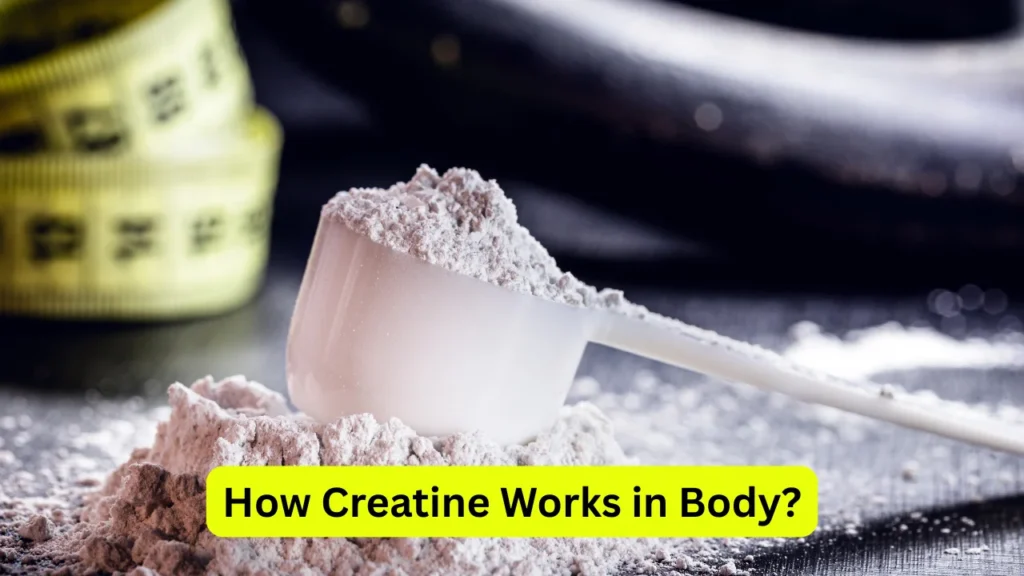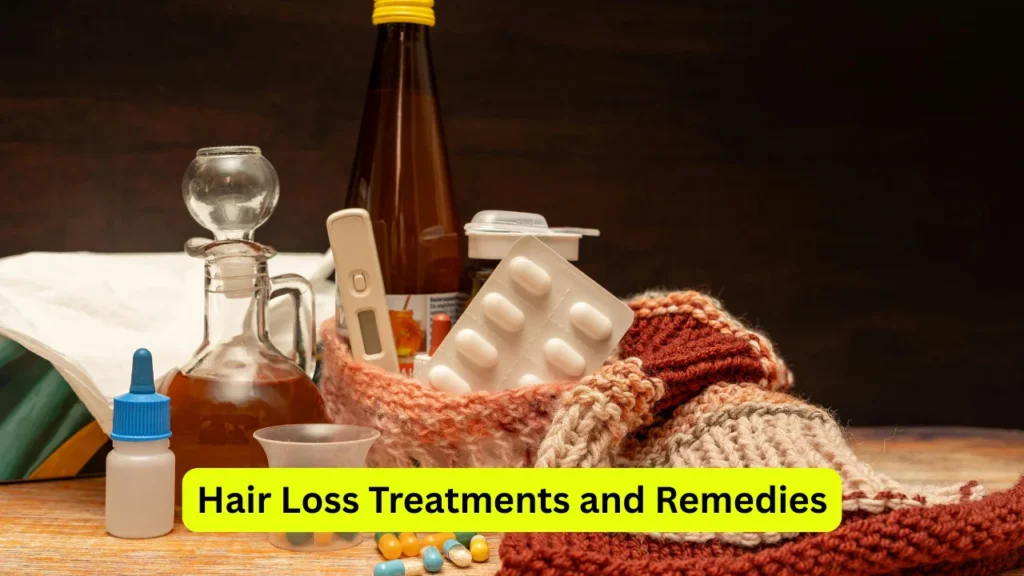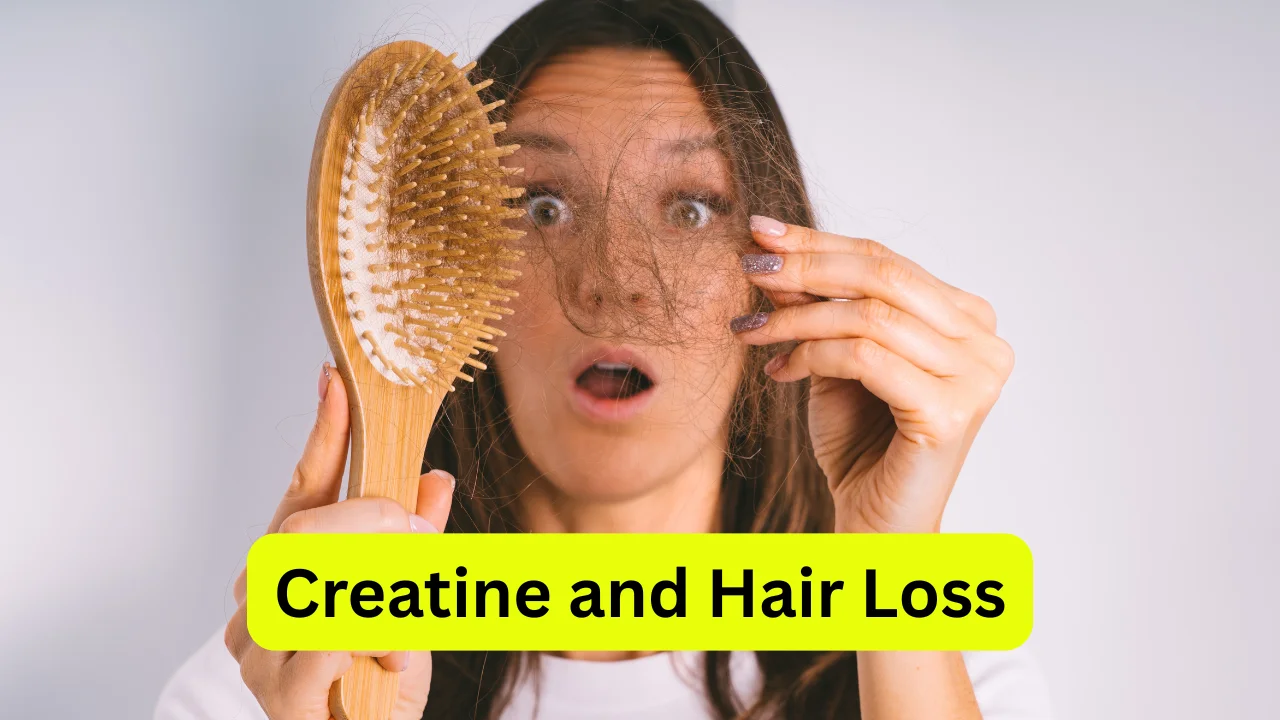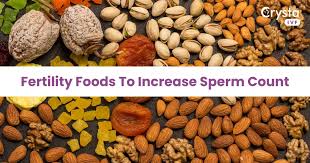Creatine and Hair Loss: What You Need to Know
Introduction
If you’re someone who works out regularly or is curious about supplements, you may have asked: “Does creatine cause hair loss?” You’ve probably seen anecdotes, forum posts, or gym talk warning that creatine leads to hair thinning. On the other hand, many people use creatine without issue. The question deserves more than a yes or no.
In this article, you’ll get an in-depth, balanced look at the evidence around creatine and hair loss, creatine hair loss myth, mechanisms, risk factors, and what you can do if you’re worried. I’ll also include tips, home remedies, treatment options, and guidance especially for women. By the end, you’ll better understand whether creatine is a hair loss problem for you, and what steps you can take on your hair loss journey.
How Creatine Works in Body?

What is creatine
Creatine is a naturally occurring compound synthesized in the liver, kidneys, and pancreas from amino acids (arginine, glycine, methionine). It gets stored mainly in muscles. It supports rapid energy production (ATP) during short, intense activity like lifting weights or sprinting.
You can also get creatine from dietary sources like red meat, fish, and supplements (typically creatine monohydrate). Many supplements aim to increase muscle strength, performance, and recovery.
Common creatine benefits
When used appropriately, people often report:
- Increased strength and power
- More lean muscle over time
- Better recovery between workouts
- Enhanced performance in short bursts
- Minimal side effects at moderate dosage
Thus creatine benefits are well documented in sports and fitness contexts.
Dosage guidelines & beginner use
- Typical maintenance dose: 3 to 5 grams per day
- Optional loading phase: ~20 g/day split into 4–5 doses for 5–7 days
- After loading, switch to maintenance
- For beginners, starting at 3 g/day without loading is a safe route
- Always drink plenty of water and maintain balanced nutrition
These guidelines help limit side effects and reduce risks of misuse.
Why Some People Worry About Hair Loss?
Link to DHT and androgen hormones
The primary concern around creatine and hair loss revolves around DHT (dihydrotestosterone). DHT is a potent androgen derived from testosterone via the enzyme 5α-reductase. In individuals genetically predisposed to androgenetic alopecia (male or female pattern hair loss), DHT can bind to androgen receptors in certain scalp hair follicles, causing them to miniaturize, weaken, and eventually stop producing visible hair.
The logic is: if creatine somehow increases DHT (or alters the hormone balance), that might accelerate hair thinning or hair fall in susceptible people.
The 2009 rugby-player study
This is the classic reference many blogs cite:
- In that study (van der Merwe et al.), male rugby players used creatine (loading + maintenance).
- After a 7-day loading period, DHT levels reportedly increased ~56%.
- Then in the maintenance phase, DHT stayed elevated relative to baseline.
That finding has fueled speculation that creatine could indirectly contribute to hair loss in those prone. But note: it didn’t measure hair density or direct hair loss—only hormonal shifts.
Why that study is not definitive
There are several limitations:
- Small sample size
- Short duration
- No genetic screening for hair loss predisposition
- Did not measure follicle health or actual hair count
Because of that, many experts regard this as weak evidence for a causal link.
What the Science Says?
Recent randomized controlled trial (2025)
A newer 12-week randomized controlled study directly assessed hair follicle health after creatine use. It found no significant changes in DHT levels, hair density, cumulative thickness, or follicular unit count between creatine and placebo groups. This provides strong evidence against the claim that creatine contributes to hair loss. PubMed+1
Systematic reviews & position papers
- The International Society of Sports Nutrition and related reviews argue there’s no strong evidence supporting a link between creatine supplementation and hair loss. PMC
- In a review, out of 12 studies of creatine and testosterone (various doses, durations up to 12 weeks), the majority did not find increases in testosterone or DHT that would suggest risk to hair follicles. PMC+1
- Medical News Today notes that the evidence that creatine causes hair loss is “weak” and primarily speculative. Medical News Today
Summary of evidence
| Evidence Type | Key Findings | Implication for Hair Loss |
|---|---|---|
| 2009 DHT increase in rugby players | Elevated DHT after creatine intake (short term) | Hypothetical mechanism, not concrete proof |
| 2025 RCT measuring follicles | No change in hair density, DHT | Strong evidence against creatine causing hair loss |
| Multiple reviews / meta-analyses | No consistent hormonal disruptions | Suggests creatine is safe in this regard |
| Anecdotal / user reports | Variable, not systematic | Low reliability, possible placebo / bias |
Though the early DHT finding raised eyebrows, it has not held up under more rigorous scrutiny. The bulk of credible evidence supports that creatine does not cause hair loss in most users.
Who Might Be More At Risk?
While creatine is unlikely to cause hair loss in most, there are scenarios where risk might be higher. Understanding those helps you decide whether to proceed, monitor, or take action.
Genetic predisposition / family history
If you already have a strong family history of androgenetic baldness (male or female pattern hair loss), your scalp follicles may already be more sensitive to DHT. In that case, any slight hormonal shift might tip the balance.
Hormonal imbalance or endocrine issues
If you already have elevated DHT, polycystic ovary syndrome (PCOS), hormonal imbalances, or disorders of testosterone regulation, adding any factor that could nudge hormone conversion might matter more.
High-dose or long-term misuse
Most studies are short to moderate duration and use recommended doses (3–5 g daily or moderate loading). Using very high doses chronically (beyond safety ranges) could have unpredictable effects, including on hormone regulation.
Poor nutrition, stress, scalp health
Hair loss is multicausal. If your diet lacks key nutrients (protein, zinc, biotin, iron), your scalp is inflamed, or you face chronic stress, your hair may already be vulnerable. In that scenario, even minor additional stressors might exacerbate thinning.
Women and hair loss
The topic of creatine and hair loss women is less studied. Women are less likely to suffer from androgenetic alopecia in the same pattern as men, but hormonal shifts (e.g. menopause, PCOS) can make hair more sensitive. Any potential DHT increase might have more impact in women already balancing small androgen changes. Still, there’s no robust evidence that creatine causes hair thinning in women broadly.
Signs to Watch: Hair Loss Symptoms
If you’re using creatine (or thinking of it) and want to watch for changes, here are common signs and patterns:
- Gradual thinning at the crown or temples
- Increased hair fall when combing or washing
- Widening part line (women)
- Miniaturized hairs (short, thin, lighter)
- Less scalp coverage over time
- Itchy or inflamed scalp (not always, but sometimes accompanying)
These symptoms are common in hair loss problem contexts like androgenetic alopecia, telogen effluvium, or diffuse thinning.
How to Use Creatine Safely with Hair Health in Mind?
If you want to benefit from creatine but minimize any hypothetical risk to hair, these tips can help.
Stick to recommended doses
- Use 3 to 5 g/day as a maintenance dose
- If doing a loading phase, limit to ~20 g/day for just 5–7 days
- Never exceed doses unsafely
Lower, consistent doses are safer and still effective (though slower to saturate muscles).
Avoid prolonged high doses
Long-term high-level use may increase unknown risks. Don’t overdo it.
Monitor your hair
Take baseline photos of your hairline, parting, crown. Then revisit them every few months. If you see thinning, reassess usage.
Support hormone balance
Maintain a healthy diet with adequate protein, healthy fats, vitamins (e.g. B, D), and minerals (zinc, magnesium). These support scalp and hormone health.
Choose high-quality creatine
Use pure creatine monohydrate from reputable brands. Avoid supplements with many added prohormones or stimulants which could more strongly influence hormones.
Hydration and scalp care
Drink ample water, ensure scalp blood flow (massage), use gentle shampoo, avoid tight hairstyles that tug on follicles.
Cycle or pause if needed
If you notice thinning, you might pause creatine for a few months and see if hair recovers. This isn’t necessary for everyone, but it’s a conservative option.
Hair Loss Treatments and Remedies

If you do notice signs of hair thinning while using creatine or independently, there are evidence-based strategies you can explore.
Medical treatments
- Minoxidil (topical) — often first line for both men and women
- Finasteride / dutasteride — inhibit 5α-reductase (for men or selected women)
- Low-level laser therapy (LLLT) — scalp devices that stimulate growth
- Platelet-rich plasma (PRP) — doctor-administered injections
- Hair transplant — surgical option when thinning is advanced
Natural / home remedies
- Scalp massage to increase blood flow
- Use of gentle, sulfate-free shampoo
- Nutrition: biotin, iron, omega-3s, vitamin D, protein
- Reducing stress (meditation, sleep)
- Avoid tight hairstyles that pull follicles
When to see a dermatologist
If hair thinning is fast, patchy, or beyond your control, get professional evaluation. They can test for thyroid, iron, hormonal levels, scalp biopsy, etc.
Specific Considerations: Women & Creatine, Hair Loss
Hormonal fluctuations
Women’s hormones (estrogen, progesterone, androgens) fluctuate during menstrual cycles, perimenopause, pregnancy. Some women may have sensitivity to slight androgen changes.
PCOS and androgen sensitivity
Women with polycystic ovary syndrome (PCOS) often have elevated androgens or DHT. In that context, any factor further influencing DHT could be more meaningful. But again, no direct studies confirm creatine causes hair loss in women with PCOS.
Dosage & safety
Women should adhere to conservative dosing (3 g/day) and monitor hair. If there is concern, consult a dermatologist or endocrinologist.
Treatment for female hair loss
Topical minoxidil, anti-androgen therapies (spironolactone, finasteride in select cases), nutritional support, and gentle hair care are standard.
Debunking Myths & Misconceptions
Here are common myths around creatine hair loss myth — and why they’re misleading:
- Myth: Creatine always causes hair loss
Reality: Evidence does not support this for the average user. - Myth: More creatine = more hair loss
Reality: No dose-response hair loss relationship has been demonstrated. - Myth: Creatine is a steroid
Reality: Creatine is not a hormone or steroid; it’s a metabolic compound. - Myth: Hair loss from creatine is permanent
Reality: Even if there is an effect, it’s more likely reversible once the supplement is stopped (if it affected you at all).
These myths propagate especially online or in gym circles but lack scientific backing.
Practical Example: Creatine Before and After Scenario
Imagine Athlete A starts using creatine (3 g/day) with no family history of baldness. Over 1 year, performance improves, no obvious changes in hair density are noticed.
Contrast with Athlete B, who has strong male-pattern baldness genes, uses 20 g/day loading for extended periods, and is under stress and poor nutrition. B might see more hair shedding—but it’s hard to attribute that solely to creatine because many factors intersect.
Thus creatine transformation in physique does not necessarily mean creatine hair loss problem.
How to Take Creatine (Beginner Guide)
Here’s a simple plan for creatine use for beginners that minimizes risk:
| Phase | Dose | Duration | Notes |
|---|---|---|---|
| Loading (optional) | ~20 g per day (split) | 5–7 days | Speeds saturation, but optional |
| Maintenance | 3–5 g per day | Ongoing | Safe, effective for long term |
| Monitoring | — | Every 3–6 months | Check hair, scalp, health markers |
Take creatine with carbs or protein to improve uptake. Avoid excessive doses. Keep hydration high.
How to Prevent Hair Loss (While Using Supplements)
If you are using creatine or other supplements, here are steps to reduce hair risk:
- Stick to safe doses
- Monitor your hair regularly
- Support general scalp health (nutrition, gentle products)
- Control stress (sleep, meditation, rest)
- Avoid harsh hair treatments (bleaching, tight braids)
- If signs of thinning appear, pause or cycle off supplements
- Consult medical professionals early
These steps apply widely—for creatine, but also for other hair loss pressures.
Limitations & Unanswered Questions
- Most studies are short term (weeks to a few months). Long-term effects remain underexplored.
- Few studies stratify by genetic risk for hair loss.
- Very limited research on creatine and hair loss women.
- Mechanistic studies directly targeting hair follicle changes under creatine remain scarce.
- Interactions with other supplements, hormones, or medications might matter but are under-researched.
Thus while evidence leans toward safety, it’s not absolute or final.
Summary
- The concern around creatine and hair loss stems from a 2009 study showing DHT increases, but that finding hasn’t held up in rigorous follow-ups.
- A newer 12-week RCT found no significant changes in hair density or DHT among creatine users.
- The bulk of scientific evidence does not support a causal link between creatine use and hair loss in most people.
- People with genetic predisposition, hormonal imbalances, or poor nutrition might be more vulnerable.
- Using moderate doses (3–5 g/day), choosing high-purity creatine, monitoring your hair, and supporting scalp health are good practices.
- If thinning appears, pause use, see a dermatologist, explore treatments like minoxidil, finasteride where appropriate.
- For women, the evidence is even less clear, so cautious use and medical supervision are wise.
In short: creatine is unlikely to be a major cause of hair loss for most users when used responsibly. But like any supplement, personal factors matter. If you’re concerned, monitor carefully and consult a professional.
Also Read: Coffee and Fertility
FAQs
Q1. Does creatine cause hair loss in everyone?
No—most research finds no link. Only a few mechanistic studies suggest a possible hormonal effect, but nothing conclusive for hair shedding in general.
Q2. Is creatine hair loss reversible?
If creatine contributed to thinning (which is unlikely), stopping it may allow hair recovery in many cases, assuming follicles are intact.
Q3. Should I avoid creatine if I have a family history of baldness?
You don’t necessarily have to avoid it—but use moderate doses, monitor hair closely, and consult a dermatologist if you notice changes.
Q4. Does creatine cause hair loss in women?
There is no strong evidence. Because women’s hormonal systems are more complex, if you have hormonal sensitivity or conditions like PCOS, extra caution is wise.
Q5. How to use creatine safely to minimize any hair risk?
Use 3–5 g/day, avoid long high-dose loading, hydrate, eat a balanced hair-friendly diet, and monitor your hair regularly.

Dr. Max is a dedicated medical professional with extensive experience in health and wellness. His approach blends clinical expertise with the latest research, offering practical insights to help individuals lead healthier, more balanced lives.





